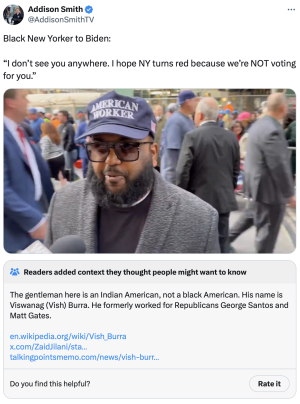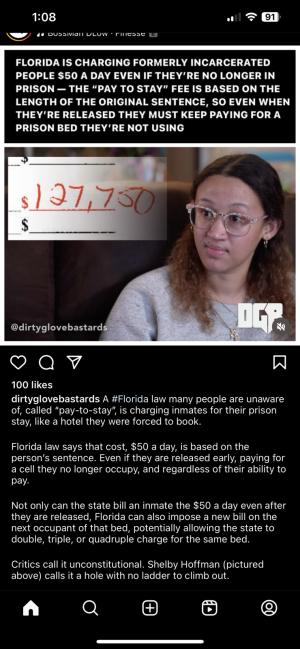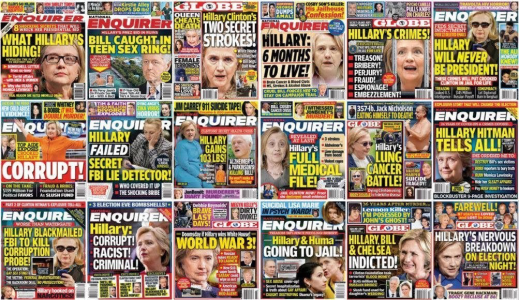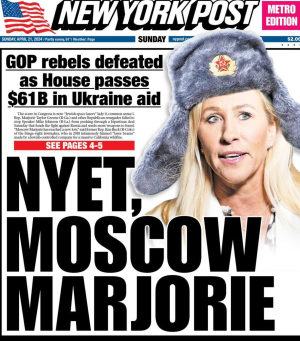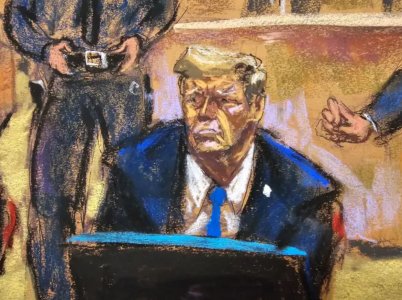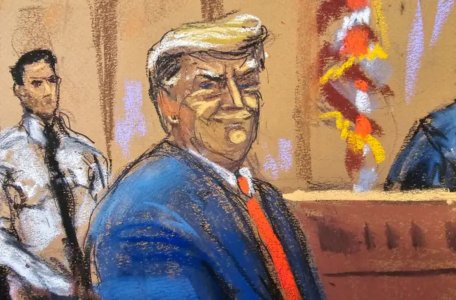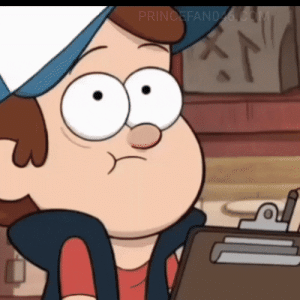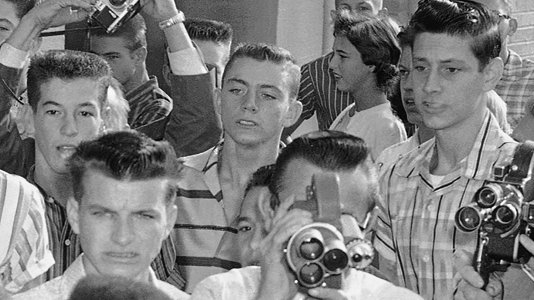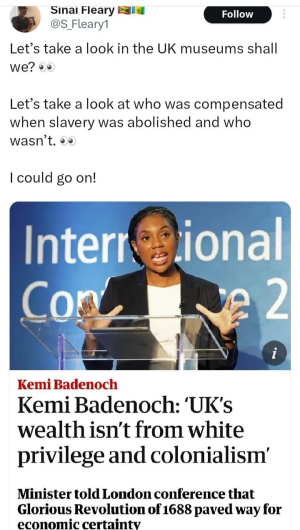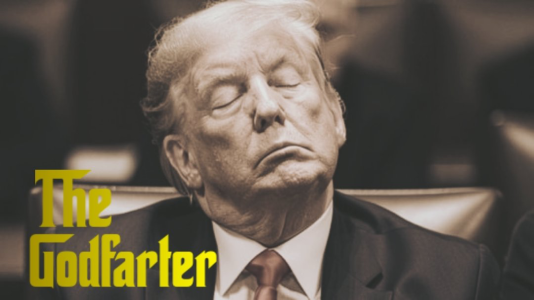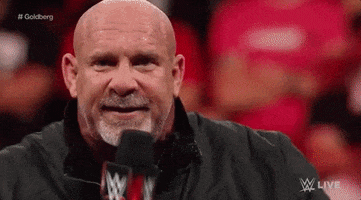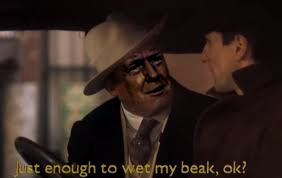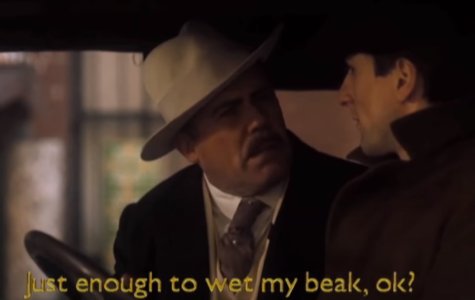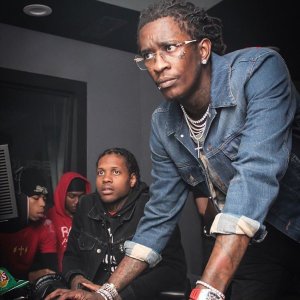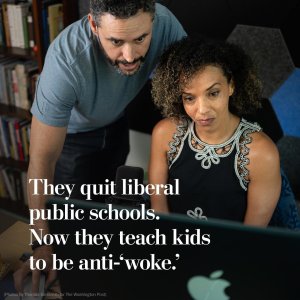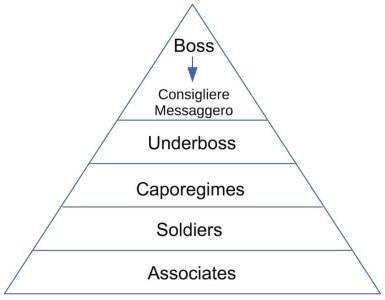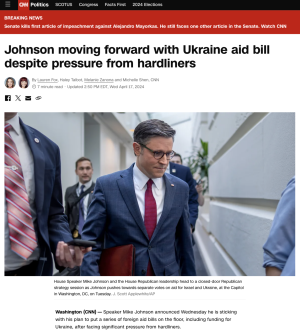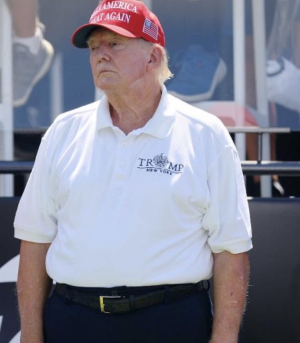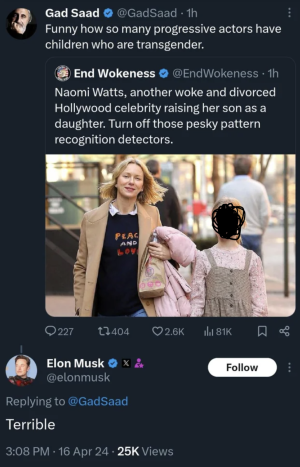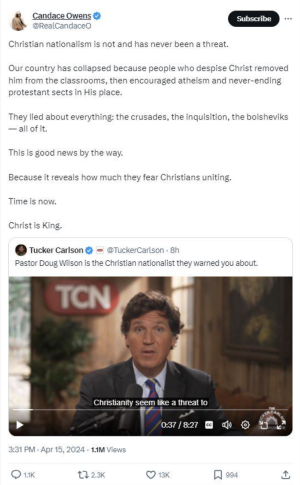Navigation
Install the app
How to install the app on iOS
Follow along with the video below to see how to install our site as a web app on your home screen.

Note: this_feature_currently_requires_accessing_site_using_safari
More options
You are using an out of date browser. It may not display this or other websites correctly.
You should upgrade or use an alternative browser.
You should upgrade or use an alternative browser.
***Official Political Discussion Thread***
- Thread in 'General' Thread starter Started by rico x hood,
- Start date
- 13,316
- 12,211
- Joined
- Oct 14, 2008
Regis? Damn I wanted to like him but now I can’t. Can’t like our biggest rivals.
aepps20
Supporter
- 40,442
- 85,641
- Joined
- Feb 8, 2004
This is like asking if 93 Jordan was better than 2018 Jordan. Our PRESIDENT ELECT was downright GORGEOUS in his youth. Dr. F is not HANDSOME and is probably a lib.
Nike Jordan
Supporter
- 32,479
- 76,766
- Joined
- Jun 27, 2002
Regis? Damn I wanted to like him but now I can’t. Can’t like our biggest rivals.
Xavier?
aepps20
Supporter
- 40,442
- 85,641
- Joined
- Feb 8, 2004
This is like asking if 93 Jordan was better than 2018 Jordan. Our PRESIDENT ELECT was downright GORGEOUS in his youth. Dr. F is not HANDSOME and is probably a lib.
- 2,270
- 2,702
- Joined
- Feb 21, 2006
It doesn't matter in terms of the money—it's tax money that's going to be spent. Whether it's via a publicly owned entity or via a contract to a company in the private sector doesn't make a difference in terms of the money itself.I am more of a commercial airplanes guy when it comes to aerospace but in a nutshell, its possible if a country REALLY wanted to do it but it would be extremely expensive due to R&D. People may contend it doesn’t matter when you look at defense programs such as the F-35 which will cost the government over a trillion dollars over the current estimated life of the program (I believe that’s through 2060). However, that was for a cost-plus contract where the government pays for any overages. They are switching to mainly fixed-price ie the manufacturer pays for overages. The new Bomber which is to be built by Northrop Grumman is cost-plus, though so it lol be interesting to see how that plays out. Having multiple firms also helps to spur innovation and drive down costs.
And I don't buy for one second the innovation and cost savings arguments. Indeed, there probably isn't a clearer-cut example of why these arguments are bull**** than Boeing's own operations over the past few years...
- 18,365
- 33,946
- Joined
- Mar 27, 2004
I was thinking this today.
It was a warm, sunny day -- unusually warm for March where I live. I was feeling good about our prospects for defeating COVID-19. The streets had been empty the past few days and people seemed to be taking it seriously.
Then I saw that everyone was out. Especially kids. Playing football, talking in groups, treating this like summer vacation. Adults were out too, being less cautious about maintaining distance than they had been the past week.
It's only been a week since we really started shutting down. A bunch of these people ARE infected and don't know it. Today, they just infected a bunch more. Many of them will be asymptomatic too and won't know it. They will infect everyone they come in contact with over the next 2-3 weeks. We will see a second wave, and a third wave, and a fourth wave...
- 8,273
- 6,908
- Joined
- Aug 22, 2012
Respectfully disagree.If a private company is deemed too essential to national interests (stability, security, etc.) that it can’t be allowed to fail, then it should be nationalized. Period.
Boeing is necessary imo to stop Airbus from monopolizing the industry.
- 783
- 1,405
- Joined
- Aug 24, 2012
I was thinking this today.
It was a warm, sunny day -- unusually warm for March where I live. I was feeling good about our prospects for defeating COVID-19. The streets had been empty the past few days and people seemed to be taking it seriously.
Then I saw that everyone was out. Especially kids. Playing football, talking in groups, treating this like summer vacation. Adults were out too, being less cautious about maintaining distance than they had been the past week.
It's only been a week since we really started shutting down. A bunch of these people ARE infected and don't know it. Today, they just infected a bunch more. Many of them will be asymptomatic too and won't know it. They will infect everyone they come in contact with over the next 2-3 weeks. We will see a second wave, and a third wave, and a fourth wave...
I’ve felt conflicted after reading these kinds of accounts. On the one hand, I’m prone to highlight the many people actually practicing social distancing and not the minority of selfish folks. I have no data, but I genuinely believe there are more people thinking of others than there are guided by a YOLO philosophy. We have a tendency to take the good and the just for granted, focusing more on the evil. On the other hand, clearly there are people willing to put other lives at risk.
I want to practice an anti-carceral politics, but if people don’t want to abide by the honor code, what then? I’m against extractive fees and fines and locking people up, but how else to discipline bad behavior? How to endorse a model of fines without empowering a police force that might use those new mandates against black people, poor people, and those criminalized for their very existence?
- 2,270
- 2,702
- Joined
- Feb 21, 2006
How would nationalizing Boeing facilitate Airbus monopolizing the industry?Respectfully disagree.
Boeing is necessary imo to stop Airbus from monopolizing the industry.
- 146,652
- 193,003
- Joined
- Mar 30, 2007
- 146,652
- 193,003
- Joined
- Mar 30, 2007
- 8,273
- 6,908
- Joined
- Aug 22, 2012
I would argue that eliminating shareholder buy-in limits growth potential therefore limiting talent acquisition and R&D.How would nationalizing Boeing facilitate Airbus monopolizing the industry?
But again, I see your point, I just disagree.
- 13,316
- 12,211
- Joined
- Oct 14, 2008
There’s a second ad they are running to which attacks him for it. Not sure if it’s this or another super PAC. They better let that **** run.
storm2006
Supporter
- 29,035
- 64,028
- Joined
- Aug 20, 2001
It doesn't matter in terms of the money—it's tax money that's going to be spent. Whether it's via a publicly owned entity or via a contract to a company in the private sector doesn't make a difference in terms of the money itself.
And I don't buy for one second the innovation and cost savings arguments. Indeed, there probably isn't a clearer-cut example of why these arguments are bull**** than Boeing's own operations over the past few years...
Yesterday Rusty said something to the effect of “Nationalize Boeing, screw the executives if they don't want to take government salary." That aside, looking at this as purely a matter of USA security, nationalizing them would also be screwing over the other 35k Boeing Defense employees by also giving them government salaries. You would then have to figure out how break up their Services division which would be a logistical nightmare. Not to mention, this nationalization would be a result of announced policy, so stockholders would have the heads up that the government is going to buy stock for a takeover, meaning the stock price will go up a lot, increasing the cost to taxpayers even more. If we look at all the defense companies that would fall in this "essential to national security" distinction then the US would also likely have to create a fund with enough money to buy all these companies and somehow spinoff the "non-essential parts". Other countries have partly nationalized militaries and it doesn't work so well because it's harder for the government to keep up with speed of technology than it is for a private company. If it was critical for any county to nationalize their defense industry then they could probably do it, but there would subsequently be a lot of court battles. I truly believe there would need to be a threat to mainland US for this to even be a realistic consideration.
What is really getting lost in all of this is that Boeing has three business units (Commercial, Defense and Global Services) so while their defense unit is critical for national security, it's not even the reason for the bailout.So unless the loan mandates this loan can only be used for Boeing Defense, at which point it would be more than likely rejected or not taken in full, then this bailout will be used for Commercial Airplanes. The national security bit was just a GOP way to slide them funds.
I don't know what to tell you about innovation and cost-savings being BS. The flight control system developed for the 737 MAX was the first of its kind and was designed to save airlines money. It would have cost way more if you didn't have the expertise of flight control engineers, simulator and test pilots, etc. that were apart of the original program (which you wouldn't if they were nationalized). Yes, there was a critical oversight which I have previously acknowledged and expressed grief for, but it wasn't so much Boeing's operations as it was their culture which led to quelling of the issue that caused the crash. I think similar levels of bureaucracy also exist within the government which would lead to similar problems except the taxpayers would be footing the bill.
- 146,652
- 193,003
- Joined
- Mar 30, 2007
- 32,800
- 19,696
- Joined
- Jul 18, 2012
i hope he gets it and suffers immensely
storm2006
Supporter
- 29,035
- 64,028
- Joined
- Aug 20, 2001
Boeing is necessary imo to stop Airbus from monopolizing the industry.
How would nationalizing Boeing facilitate Airbus monopolizing the industry?
I would argue that eliminating shareholder buy-in limits growth potential therefore limiting talent acquisition and R&D.
But again, I see your point, I just disagree.
What
- 6,408
- 15,493
- Joined
- Jun 28, 2004
Respectfully disagree.
Boeing is necessary imo to stop Airbus from monopolizing the industry.
There still would be Boeing if it were nationalized and it would largely run as it did before save for three things.
No more cutting corners on safety.
Much smaller pay for higher ups
The American people are the shareholders
- 783
- 1,405
- Joined
- Aug 24, 2012
WhatBrownstone pretty much hit it on the head and I alluded to those points in my post. Lower salaries means engineers will go elsewhere and the government wouldn't be able to keep up with the R&D. Airbus is already assembling airplanes in the US, this would open the door to them just opening Engineering Centers in the US and taking all of the domestic talent and market share.
How are you guys defining nationalization? Or, more to the point, what does nationalization look like (procedurally, in terms of democracy, inequality, etc)? What does nationalization look like given the challenges (and opportunities) of federalism? And if nationalization of Boeing means “no more cutting corners on safety” what of the idea of regulatory capture?
A lot to read these days, but I’ve been trying to think about just where nationalization fits, so to speak, within leftist politics. Very useful overview of the growing lukewarm support for nationalization post 1990s (Borris Kagarlitsky, “Is Nationalization Dead?” 2000).
- 6,408
- 15,493
- Joined
- Jun 28, 2004
I’ve felt conflicted after reading these kinds of accounts. On the one hand, I’m prone to highlight the many people actually practicing social distancing and not the minority of selfish folks. I have no data, but I genuinely believe there are more people thinking of others than there are guided by a YOLO philosophy. We have a tendency to take the good and the just for granted, focusing more on the evil. On the other hand, clearly there are people willing to put other lives at risk.
I want to practice an anti-carceral politics, but if people don’t want to abide by the honor code, what then? I’m against extractive fees and fines and locking people up, but how else to discipline bad behavior? How to endorse a model of fines without empowering a police force that might use those new mandates against black people, poor people, and those criminalized for their very existence?
First try carrots instead of sticks, pay people not to work and provide any and supports to make staying at home easier. After that I know we need sticks to deal with those who won’t follow stay at home orders. But to our point, I’m also weary of using the cops and the criminal legal system.
Perhaps there could be neighborhood volunteers block wardens who would not have arresting powers but could shame and compel their neighbors into following orders. This could be especially useful in black and brown neighborhoods where the respected members of the community would be far preferable to having law enforcement sweeping the streets.
- 18,365
- 33,946
- Joined
- Mar 27, 2004
Great point and I share the trepidation. The problem (at least from who I saw out and about) is spoiled suburban kids, but I could see the police targeting the wrong people. Also, the fines would be nothing to a rich family but could be disastrous for lower income families or for those who have lost their jobs.I’ve felt conflicted after reading these kinds of accounts. On the one hand, I’m prone to highlight the many people actually practicing social distancing and not the minority of selfish folks. I have no data, but I genuinely believe there are more people thinking of others than there are guided by a YOLO philosophy. We have a tendency to take the good and the just for granted, focusing more on the evil. On the other hand, clearly there are people willing to put other lives at risk.
I want to practice an anti-carceral politics, but if people don’t want to abide by the honor code, what then? I’m against extractive fees and fines and locking people up, but how else to discipline bad behavior? How to endorse a model of fines without empowering a police force that might use those new mandates against black people, poor people, and those criminalized for their very existence?
Side note -- I saw Fauci talk about the second wave. I was referring to short-term waves, like every month or so, whereas he was talking about a second wave next winter since it appears coronavirus will migrate to the southern hemisphere over the news few months and then would return north just in time for next winter.
- 2,270
- 2,702
- Joined
- Feb 21, 2006
Growth of a publicly owned entity would be predicated on democratic processes. So to the extent that the GOP and a smaller and less committed segment of the Democratic Party are committed to the destruction of the public sector, there are certainly concerns related to the intentional sabotage of any public entity. But this is the major problem facing public institutions—underfunding and intentional subversion—not something inherently problematic about the public sector in general.I would argue that eliminating shareholder buy-in limits growth potential therefore limiting talent acquisition and R&D.
But again, I see your point, I just disagree.
- 18,365
- 33,946
- Joined
- Mar 27, 2004
This is following a nice pattern of "this is why we can't have nice things." At each step the government gives us a chance to show personal responsibility but we can't handle it so they have to increase the enforcement of rules.First try carrots instead of sticks, pay people not to work and provide any and supports to make staying at home easier. After that I know we need sticks to deal with those who won’t follow stay at home orders. But to our point, I’m also weary of using the cops and the criminal legal system.
At first cities tried encouraging social distancing... but people just huddled in bars. It kept getting upgraded so now it's stay-at-home except to go grocery shopping or for brief, solitary walks. But people are violating that too. So next is to shut down all parks.
Keep this up, idiots, and soon we'll have martial law.
Similar threads
- Replies
- 5
- Views
- 1K
